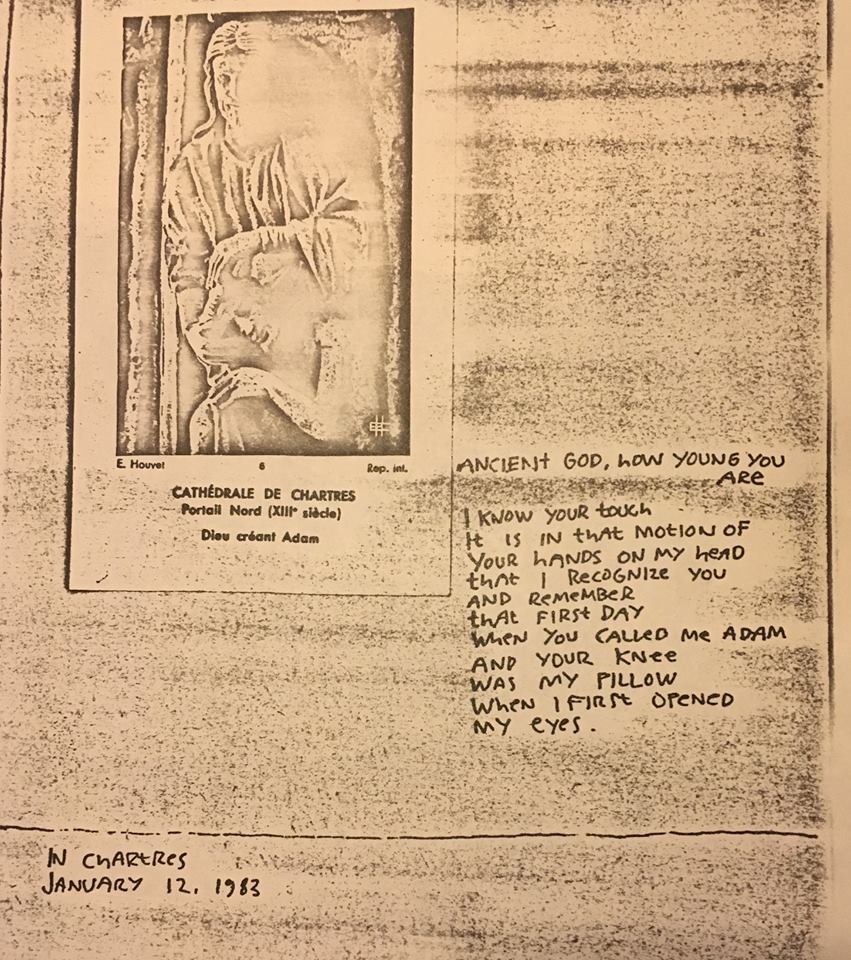I can’t remember how or when I came across this poem written in 1983 by Jim Forest, legendary peace activist, biographer, and friend of Thomas Merton and Dorothy Day. But I found it so kind and intimate in its portrayal of the loving relationship between creature and Creator. Jim has given me permission to share the poem, which was written while he was honeymooning with his wife Nancy in France. The poem was inspired by a sculpture at Chartres Cathedral (pictured below).
Ancient God, how young you are
I know your touch
It is in that motion of
your hands on my head
that I recognize you
and remember
that first day
when you called me Adam
and your knee
was my pillow
when I first opened
my eyes.
Jim’s most recent biography is At Play in the Lion’s Den: A Memoir and Biography of Daniel Berrigan. He is currently working on an autobiography. Visit Jim and Nancy at jimandnancyforest.com. And see Jim’s collection of Adam & Eve art at flickr.com.
Pictured from left to right: The sculpture at Chartres that inspired Jim’s poem; a copy of the original, hand-written poem; Go On, Adam by Jack Baumgartner, shared with permission (visit Jack’s website here); The Creation of Adam by Michelangelo.








